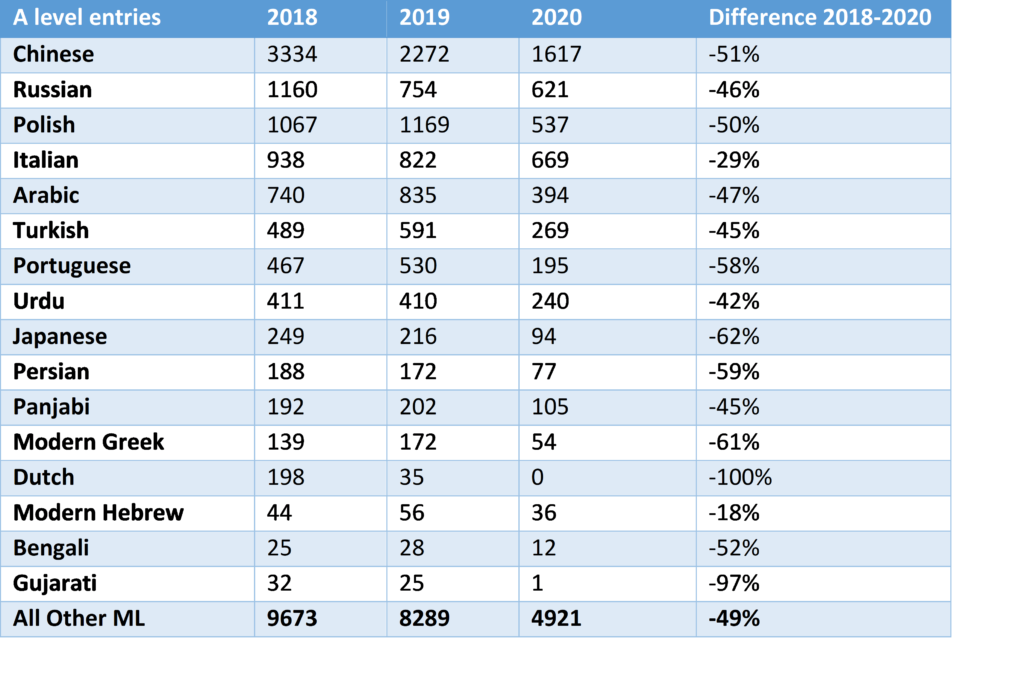Guest post by Teresa Tinsley, Alcantara Communications
On the face of it, this year’s A level results for languages show little change from the trends we have been seeing for years – entries for Spanish are up by 1%, those for French down 1%, and those for German down by about 6%. The continuing decline of German is, of course, extremely troubling – but nothing new.
What is a tragedy for language learning in the UK is the decline in entries for the so-called ‘Other Languages’. For years, we’ve consoled ourselves over the decline in French and German by the observation that entries for these other languages have been very healthy. Some, like Arabic, Polish, and Portuguese, have been increasing steadily year on year. In 2019, Other Languages represented around 30% of total language entries for A level, even though many are not taught in mainstream schools.
This year the Other Languages are down by 41%. The majority have seen entry figures decline by more than 50%. We can identify two reasons for this:
New A level specifications
The new A level specifications for the majority of these languages were introduced in 2018, so 2020 is the first year in which they have been examined. Evidence from last year suggests that the new arrangements have been a contributing factor in making these languages less accessible for pupils who study them outside of a mainstream school:
The new specifications for the Chinese, Russian and Italian were introduced a year earlier and it is notable that these languages saw declines between 2018 and 2019, when these exams were first taken, despite almost all the other languages seeing increases.
Exceptional arrangements as a result of Covid-19
It is to be noted that entries for all the Other Languages – not just those for which new specifications have been introduced – have seen a decline in 2020. This leads us to the second reason, which must surely be the system of centre assessed grading introduced to replace exams cancelled because of Covid-19.
As the All-Party Parliamentary Group on Modern Languages and NRCSE pointed out in their consultation response to Ofqual in April, the majority of students taking an examination in their ‘community’ language are learning in contexts outside their school – in Saturday classes, at home, or in the community. Very few supplementary schools are registered as examination centres. This means that these pupils have effectively been excluded from the examination system this year. In 2019, 3,368 more pupils took an A level in one of these languages than in 2020. What impact will this have on students’ chances of a university place? Or on their ability in future to provide evidence of the language skills they possess?
Double whammy
The combined effects of the two factors – the new specifications combined with this year’s centre assessment grading system, have resulted in the number of entries for Other Languages declining by 49% – see chart below. Nearly 5,000 pupils have been denied the opportunity to obtain a qualification that could have been critical to their future careers.
This is a shocking, tragic loss for the pupils and their families and for our country.


Leave a Reply
You must be logged in to post a comment.